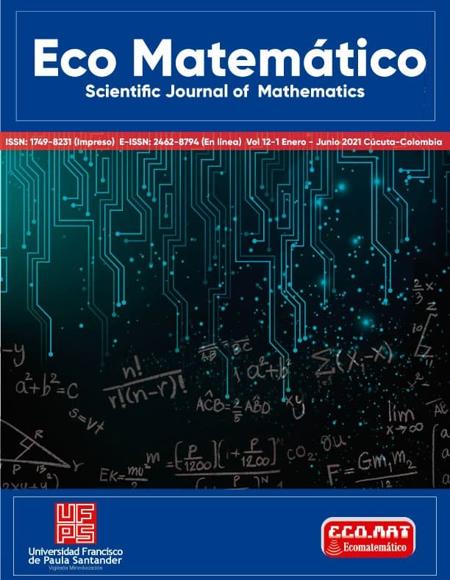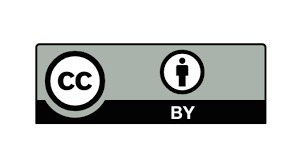A Characterization of variational thinking from linear-diaphantic equation problem solving and Grounded Theory
Una caracterización del pensamiento variacional desde la resolución de problemas de ecuaciones lineales diofánticas y la teoría fundamentada
Main Article Content
Variational thinking has been characterized from different contexts and perspectives, generally these works have been carried out from the solution of problems involving the concept of function in continuous domains. The research was focused on answering the research question, how is the nature of variational thinking manifested by mathematics teachers in training, when solving problems of diophantine linear equations? The work was guided by a qualitative approach with a strategic design based on grounded theory. As data sources, 6 learning sequences were designed and implemented to a group of 24 students who took a course of Number Theory and are training to become mathematics teachers. Among the findings, it stands out, how from particular situations, students make conjectures, discover relationships and patterns that lead them to perform actions to represent, organize and reorganize their knowledge. The simultaneous processes of data collection, codification and analysis and the method of constant comparison, led to theoretical saturation, making it possible to build the core of the theory, as a process between the variational operations of particularizing, conjecturing, relating, generalizing and proving, together with a series of actions manifested by the participants, when their variational thinking operates on problems involving diophantine linear equations of the form .
Downloads
Article Details
Blanton , M., & Kaput, J. (2011). Functional Thinking as a Route Into Algebra in the Elementary Grades. En J. Cai , & E. Knuth (Edits.), Early Algebraization. Advances in Mathematics Education. Berlin,Heidelberg: Springer
Burton, L. (1984). Mathematical Thinking: The Struggle for Meaning. Journal for Research in Mathematics. Education, 15(1), 35-49. doi:10.2307/748986
Caballero, M., & Cantoral, R. (2013). Una caracterización de los elmentos del pensamiento y lenguaje variacional. En R. Flores (Ed.), Acta latinoamericana de Matemática Educativa (págs. 1197-1205). México, DF: Comité Latinaoamaericano de Matemática Educativa
Carlson, M. (1998). A cross-sectional investigation of the development of the function concept. Research in Collegiate Mathematics Education III, CBMS, 7, 114-162
Castillo-Garsow, C. (2010). Teaching the Verhulst model: A teaching experiment in covariational reasoning and exponential growth. Tempe, AZ: Arizona State University
Castillo-Garsow, C. (2012). Continuous quantitative reasoning. En R. Mayes, R. Bonilla, L. Hatfield, & S. Belbase (Edits.), Quantitative reasoning: Current state of understanding, (Vol. 2, págs. 55-73). Laramie: University of Wyoming
Castillo-Garsow, C., Johnson, H., & Moore, K. (2013). Chunky and smooth images of change. For the Learning of Mathematics, 33(3), 31-37
Charmaz, K. (2014). Constructing grounded theory (2 ed.). Thousand Oaks, CA: Sage
Confrey, J. (1991). The concept of exponential functions: A student’s perspective. En L. Steffe (Ed.), Epistemological Foundations of Mathematical Experience. Recent Research in Psychology (págs. 124-159). New York, NY: Springer
Confrey, J., & Smith, E. (1995). Splitting, covariation and their role in the development of exponential function. Journal for Research in Mathematics Education, 26, 66-86. doi:10.2307/749228
Corbin, J., & Strauss, A. (2008). Basics of qualitative research:Techniques and procedures for developing grounded theory (3 ed.). Thousand Oaks, CA, USA: SAGE Publications
Corbin, J., & Strauss, A. (2017). Conceptos básicos de la investigación cualitativa: técnicas y procedimientos para desarrollar la teoría fundamentada (4 ed.). Thousand Oaks, California, United States of America: SAGE Publications
Gagne, R. (1965). The Conditions of Learning. Holt. Rinehart and Winston
Mason, J., Burton, L., & Stacey, K. (2010). Thinking Mathematically (2 ed.). Harlow, UK: Pearson Education Limited
Mayer, R. (2010). Problem Solving and Reasoning. International Encyclopedia of Education, 273-278. doi:10.1016/B978-0-08-044894-7.00487-5
Ministerio de Educación Nacional de Colombia. (2006). Estándares Básicos de Competencias en Lenguaje, Matemáticas, Ciencias y Ciudadanas. Recuperado el 30 de 05 de 2020, de http://cms.mineducacion.gov.co/static/cache/binaries/articles-340021_recurso_1.pdf?binary_rand=1223
Piaget, J. (1970). Piaget’s Theory. En P. Mussen (Ed.), Carmichael’s Manual of Child Psychology (T. G. Gellerier & J. Langer, Trad., 3 ed., Vol. 1). New York: Wiley
Polya, G. (1945). Cómo plantear y resolver problemas. Editorial Trillas. México: Editorial Trillas
Polya, G. (1981). Mathematical Discovery. New York: Wiley
Saldanha, L., & Thompson, P. (1998). Re-thinking covariation from a quantitative perspective: Simultaneous continuous variation. En Proceedings of the Annual Meeting of the International Group for the Psychology of Mathematics Education
Schoenfeld, A. H. (2016). Learning to think mathematically: Problem solving, metacognition, and sense making in mathematics (Reprint). Journal of Education, 196(2), 1- 38. doi:10.1177/002205741619600202
Smith, E. (2008). Representational thinking as a framework for introducing functions in the elementary curriculum. En K. James, J., D. Carraher, & M. Blanton (Edits.), Algebra in the early grades (págs. 133-160)
Thompson, P. (1990). A theoretical model of quantity-based reasoning in arithmetic and algebraic. Center for Research in Mathematics & Science Education
Thompson, P. (2011). Quantitative reasoning and mathematical modeling. En L. Hatfield, S. Chamberlain, & S. Belbase (Edits.), New perspectives and directions for collaborative research in mathematics education. WISDOMe Mongraphs (Vol. 1, págs. 33-57). Laramie, WY: University of Wyoming
Thompson, P. W., & Carlson, M. (2017). Variation, covariation, and functions: Foundational ways of thinking mathematically. (J. Cai , Ed.) Compendium for research in mathematics education, 421-456
Thompson, P., & Thompson, A. (1992, Abril). Images of rate. Paper presented at the Annual Meeting of the American Educational Research Association. San Francisco. Recuperado el 17 de 06 de 2020, de http://pat-thompson.net/PDFversions/1992Images.pdf
Thompson, P., Carlson, M., Byerley, C., & Hatfield, N. (2014). Schemes for thinking with magnitudes: A hypothesis about foundational reasoning abilities in algebra 1, 2, 3. En L. Steffe, L. Hatfield, & K. Moore (Ed.), Epistemic algebraic students: Emerging models of students' algebraic knowing, 4, págs. 1-24







